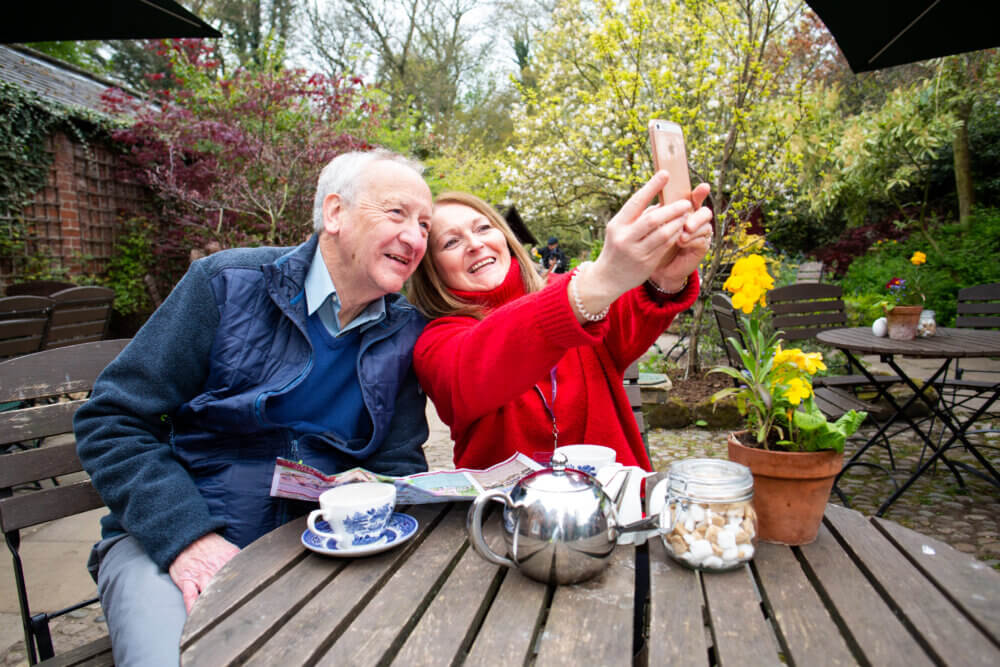The Support We Provide at Home Instead North Oxfordshire.
At Home Instead we do things a little differently. Home care tasks are only part of the picture. We provide relationship-led support that enhances people's lives.

Seeking support at home.
Graham Holtom, one of the owners at Home Instead in North Oxfordshire, was seeking support for his parents at home in Oxfordshire in 2009, and so knows first-hand what its like as family member. Many things mattered at the time; family reluctance, the relationship with the provider, the quality of the experience and reliability. Fast forward nearly 15 years and the organisation has delivered support for many hundreds of people.

Families seeking support
The first contact for a potential new client is most often made by a daughter who is worried about her Mum or Dad or both. She often has a number of confusing and conflicting emotions; she is distressed about her parents deteriorating, she has a busy life and feels guilty she can’t do more, she is concerned about her parents reluctance to see their needs for support (perhaps they have had a bad experience before), she hears so many bad stories about the ‘care’ industry, she is tired and doesn’t know where to turn.
The best place to start is to drop us a line. We work differently to many aiming not only to help with tasks but to improve people’s lives.
See more detail on what we do and how we do it below.

Our approach to support at home
Many people when they think about ‘care’ at home, are concerned about tasks they can see need doing be that helping with meals, with bathroom routines and dressing, looking after the house or medication management. Undoubtedly tasks can be important, but the relationship that a client has with their caregivers is critical. Later life can be very different to years past and clients can often feel lonely and a little frightened of what the future holds and so the relationship can be the part where the real value for them lay. They can also have a misconception about the service we provide and can feel that there will be strangers in the house poking their nose in and they will lose their independence.
To reach this relationship we need to work in particular way. We don’t do short visits and provide consistency, so the same people show up each time (and on time). The notion that nothing is rushed allows for relationships to flourish and we follow up regularly to make sure things are working well. Within these relationships we can then engage in the more pleasant things in life such as conversation, going out of the house, socialisation and staying active in addition to what people tend to think of as ‘care’ tasks. There are lots of stories of pleasurable things caregivers have done with clients and we in the office also want to do our bit in helping people to get the most out of life. For the last few years for example we have encouraged clients to participate in planting projects in the garden. Last year for example we provided pots, compost and seeds for clients (30 clients participated) to grow flowering plants from seed that attract bees in the summer – Our Bee Friendly project (see video below)!
This consistency not only provides a pleasurable experience, but it also means caregivers are well placed to notice changes in their clients that they can report so that we can inform families and act. The approach can also mean frailty can be offset – see our article on frailty here.
As people needs change and they need a little more, we also provide live-in care which means there is a caregiver living with your loved one, see here. This can be a useful service when someone needs more and is an alternative to a care home for many people. It also means its possible to stay with the same organisation as hourly care needs migrate to something more.
See more detail below on our process and next steps.

What next and the process.
The easiest and best starting point is to have a conversation with us. There’s no obligation and provides an opportunity for us all to understand a bit more about each other and the circumstances you face. Feel free to use our enquiry form here or call or email graham (number and email address above). For some clients then it may make sense for us to drop in and meet them. This can build confidence and perhaps take some of the concern away.
Beyond that we will then need to understand what visits and needed and when so that we can confirm we have staff available we feel will suit your loved one. We then will need to prepare a support plan and other documentation so we can formally document the circumstance of the client and what is needed so we can be sure everything will be smooth. Then we can start the service and introduce caregivers.

How can we help?
We've helped thousands of families to stay safe, comfortable and happy at home. Whatever situation you're facing, or whatever the question is, Home Instead is here to help.
Are you in need of a little guidance right away?
03300 583450Are you in need of a little guidance right away?
03300 583450